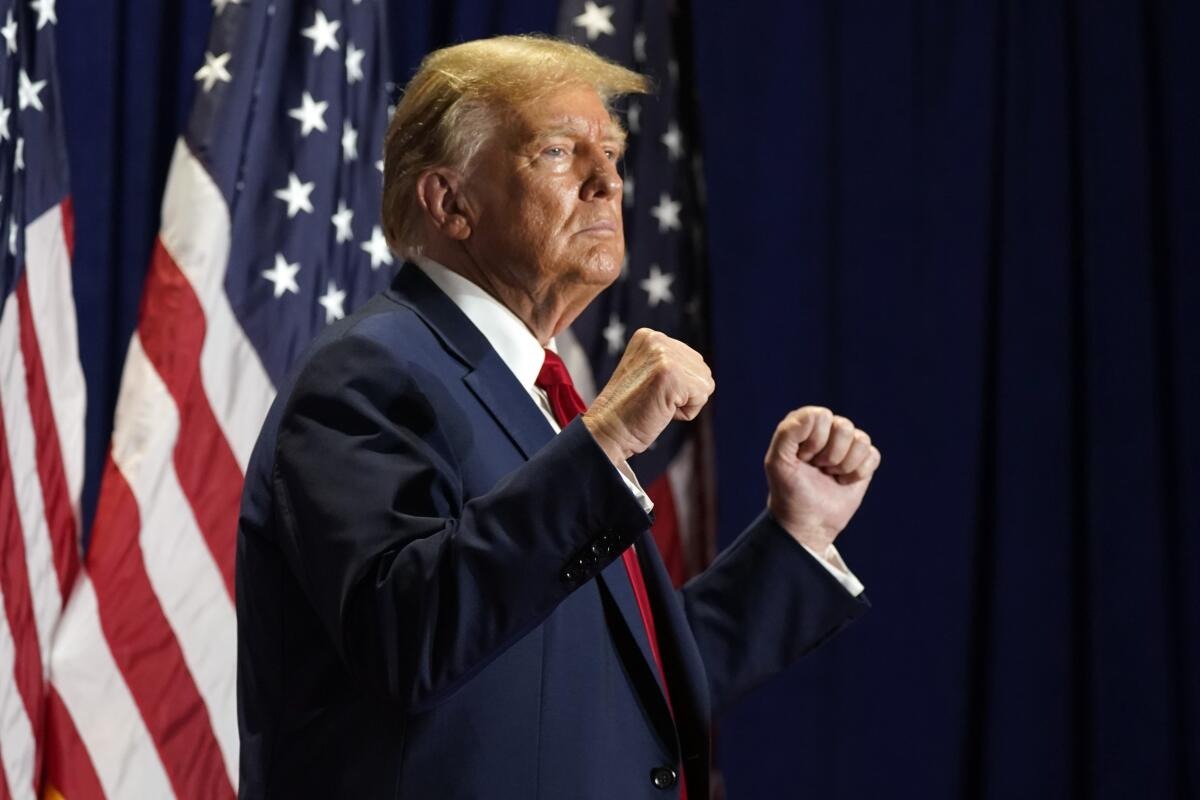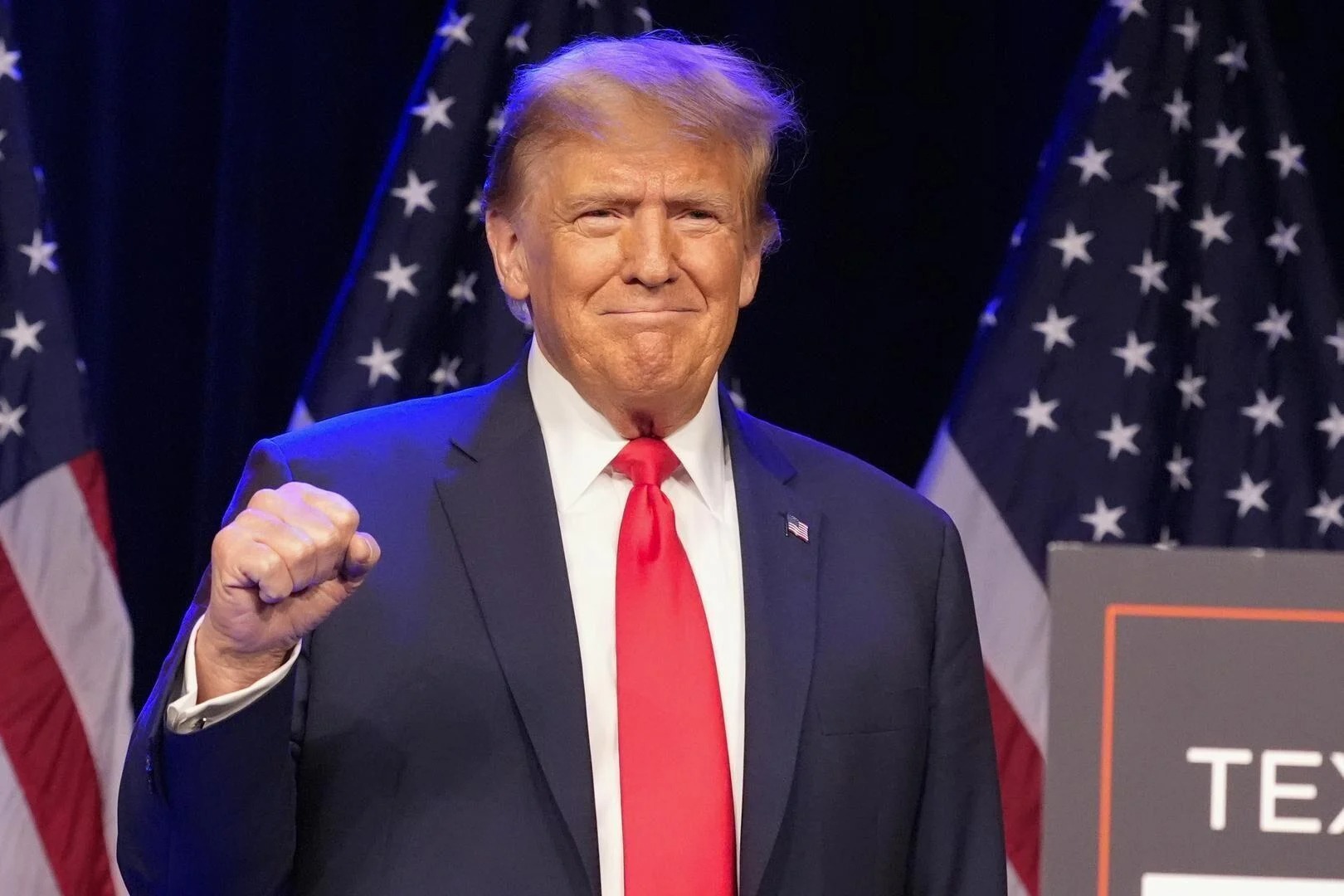The U.S. Supreme Court unanimously ruled that Colorado cannot prevent Donald Trump from appearing on the ballot. The court rejected the argument that Section 3 of the 14th Amendment, which disqualifies insurrectionists from holding federal office, could bar Trump from running again.
This decision underscores the court’s rejection of the idea that an obscure constitutional provision could determine the outcome of a presidential election.
The court’s opinion, authored collectively and known as a per curiam, has two parts. First, it states that states, like Colorado, lack the authority to disqualify a candidate under Section 3 unilaterally.
Second, it clarifies that for Section 3 to be invoked, Congress would need to pass a law specifying the procedures to determine disqualification.

Donald Trump (Credits: San Diego Union-Tribune)
While the three liberal justices agreed with the judgment, they did not join the court’s opinion. Instead, Justices Sonia Sotomayor, Elena Kagan, and Ketanji Brown Jackson wrote a joint concurring opinion, expressing concern that the majority’s assertion about congressional action could create unnecessary uncertainty.
Justice Amy Coney Barrett agreed with the liberal justices’ substantive position but criticized their tone, arguing for unity over disagreement.
Barrett’s call for unanimity is significant, as all nine justices agreed that it would be unwise for states to disqualify presidential candidates under Section 3 independently.
While the court’s decision may have avoided immediate uncertainty, it effectively closes the door on the possibility of a federal court suit disqualifying Trump under Section 3.
The court’s reliance on precedent, particularly Griffin’s Case, an 1869 decision by Chief Justice Salmon P. Chase, was instrumental in shaping the decision.
This precedent has been influential in interpreting Section 3 since 1869. Congress did pass legislation implementing Section 3 in 1870, which remained in effect until 1948.
The court’s decision in Trump v. Anderson highlights the importance of precedent in ensuring a stable and predictable constitutional order.
While some may have hoped for a different outcome, the court’s ruling affirms that constitutional interpretation should be guided by established precedent and legal reasoning.
























